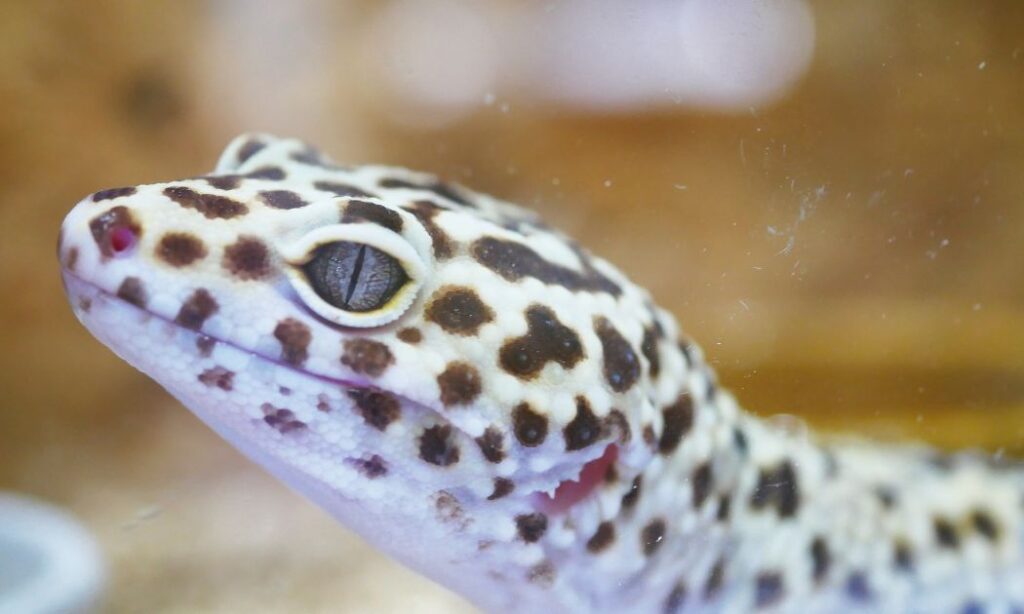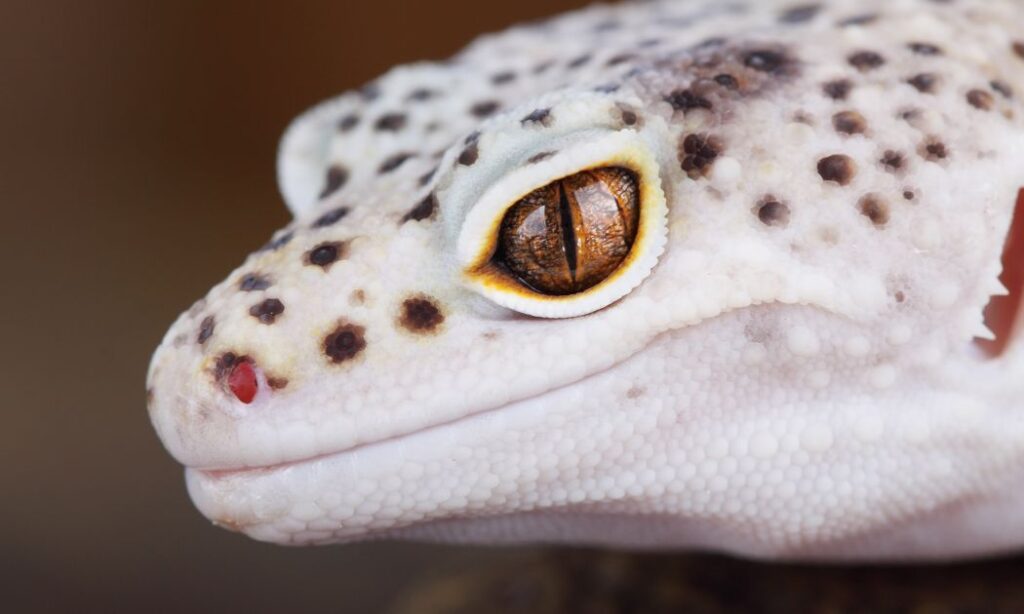If you own a leopard gecko, you may have noticed that they tend to avoid red light. In fact, many pet owners believe that red light is bad for leopard geckos and will cause them stress. However, there is no scientific evidence to support this claim. So what is the story behind this belief? Read on to find out!
Whether or not red lights are bad for leopard geckos
When it comes to geckos, many people wonder if the use of red lights is beneficial or harmful. On the one hand, it’s true that geckos can see red light, and some believe that providing a red light in their habitat has a calming effect and helps geckos feel more secure.
However, there are also concerns that long-term exposure to red light could be damaging to gecko health, as geckos aren’t naturally exposed to this kind of lighting in the wild.
For this reason, some experts recommend limiting or avoiding the use of red lighting when keeping geckos at home.
Ultimately, gecko owners need to decide for themselves based on the individual needs of their pet.

Pros and cons of using red lights with leopard geckos
Red lights are increasingly becoming a popular choice when it comes to heating and lighting for leopard geckos. These lights generate heat without being overly bright and thus, are believed to provide geckos with necessary nighttime warmth and bright enough light day and night.
On the plus side, using red lights can also give geckos an ideal night time environment by creating a gentle transition from day to night.
However, some gecko keepers have reported that these lights can confuse the gecko’s natural circadian rhythm in the long run causing sleep disruption or aggression.
In conclusion, while these potentially life-saving red lights may have their pros, gecko owners should still be cautius of relying solely on them so as to avoid any potential health hazards to their beloved pet.
Tips on how to properly care for leopard geckos if you do choose to use red lights
If you are a gecko owner, you may be interested in learning how red lights can help your gecko to thrive. In the wild, geckos sleep by day and wake up to hunt at night – so they need darkness in order to sleep properly.
Red lights will provide nighttime visibility while still maintaining darkness which geckos need. They should be used sparingly as geckos still need their regular amount of daytime hours too.
Additionally, consider gradually changing your gecko’s light cycle over the course of several weeks instead of making abrupt changes that could put your gecko into shock and make them ill.
The main points
This post has highlighted the fascinating relationship between geckos and red lights. The geckos’ shifting behavior in response to these lights is mysterious, as geckos without any prior experience with artificial light still behave as if they are avoiding artificial lights.
Further research into this topic could help us understand how geckos react to their environment based on learned traits.
Additionally, geckos may provide a useful indicator of how educational environments can be designed for better night vision, which could be especially beneficial for nocturnal animals.
All in all, geckos have an incredible way of interacting with their environment that extends far beyond the well-known habit of scurrying away from bright lights.

In conclusion, there is no definitive answer to whether or not red lights are bad for leopard geckos.
Some leopard gecko experts recommend against using them while others find that their reptiles do just fine under red lighting.
If you do choose to use red lights with your leopard gecko, be sure to follow the proper care guidelines we’ve shared in this post to ensure your pet stays healthy and happy.
Related posts:

Hi – I’m Erika, the lead gecko enthusiast here at Geckopedia! I write articles about pet geckos, including what to feed your leopard gecko and how to help your pet gecko live a long, happy life! I graduated with advanced degrees from UC-Berkeley, the University of Southern California (USC) and Indiana University-Bloomington, where I studied Biology and Animal Science. I use my experience to help others learn about gecko care, and I am an advocate for all topics gecko related!
